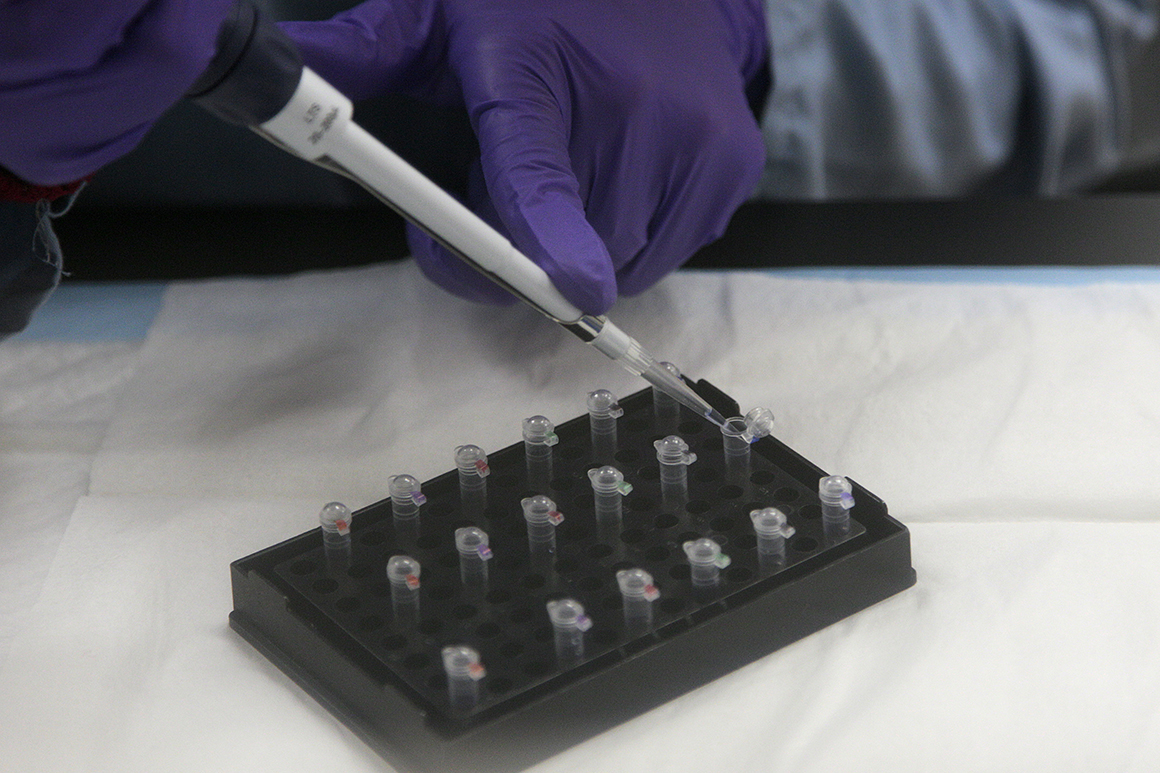
“They’re doing it at a snail’s pace on the removal, and they’re adding people more quickly. It really neutralizes any sense of reform,” said Terri Rosenblatt, supervising attorney of the DNA Unit at Legal Aid.
Advocates are pushing for state legislation that would ban New York City and other municipalities from maintaining their own DNA databases. The state maintains its own, more limited DNA tracking system, which includes only people convicted of crimes.
“A year ago, the NYPD promised to reform its shameful practice of collecting and indexing DNA from people — including children as young as 12 — who have not been convicted of a crime,” Rosenblatt said. ”These numbers show that the NYPD can’t be trusted. Legislators must act now to end genetic stop and frisk, which disproportionately culls the DNA of Black and Latinx people, by shutting down the city’s rogue DNA index.”
Police brass have described DNA as a crucial tool in solving violent crimes.
“We have a responsibility to use available technology and scientific advancements in a constitutional and legal way in order to protect the communities we serve,” Chief of Detectives Rodney Harrison said at the hearing last year. “Law enforcement, the defense bar, and the courts have acknowledged DNA testing’s unparalleled ability to both exonerate the wrongly accused and identify the guilty.”
The city’s database was built up over more than two decades and expanded rapidly in the last few years. As of the promised reforms last year, about a quarter of the people in it — or 8,000 profiles — had not been convicted of a crime. That includes people who were questioned but never charged, or charged but not convicted.
DNA is collected by the NYPD and stored in a database maintained by the Office of the Chief Medical Examiner. The statistics show that 2,826 profiles have been flagged for removal by NYPD, while 1,042 of those have had all paperwork completed and been fully removed by the medical examiner.
The NYPD reports that it has reviewed 8,000 suspect profiles as of the end of 2020 and recommended removing 2,826 of them while keeping 5,174 in place. Of those they opted to keep, 5,030 are “designated offenders” convicted of felonies or penal law misdemeanors, while 134 are suspects in ongoing investigations or prosecutions. There are another 10 where no judicial conclusion was reached.
The profiles that have been flagged for removal, but not yet fully deleted, are no longer compared to forensic material found at crime scenes, according to the medical examiner’s office.
“Those who have been directly affected by violent crime appreciate the role DNA analysis as a tool plays in giving them answers and ultimately delivering justice. As of December, there were almost 3,000 DNA samples flagged for removal from the local database,” said OCME spokesperson Aja Worthy-Davis. “This ongoing process is technically complex, and accuracy is essential, however with consideration to public concerns we have effectively removed access to those cases in the process of elimination. We have kept our partners updated on this process throughout, and will continue to do so.”
The NYPD did not respond to a request for comment Tuesday.
In addition to removing old profiles, the announced reforms include limiting the collection of DNA from minors, who will only have DNA taken if they’re suspected in a felony, sex crime, gun crime or hate crime.
The plan also included a new consent form giving subjects more information about how their genetic information will be used before they sign off. Some people agree to give a DNA sample, while others have it taken under a court order or from what cops call abandoned property, such as a water bottle or cigarette.
Related posts:
Views: 0
 RSS Feed
RSS Feed

















 February 25th, 2021
February 25th, 2021  Awake Goy
Awake Goy  Posted in
Posted in  Tags:
Tags: 
















